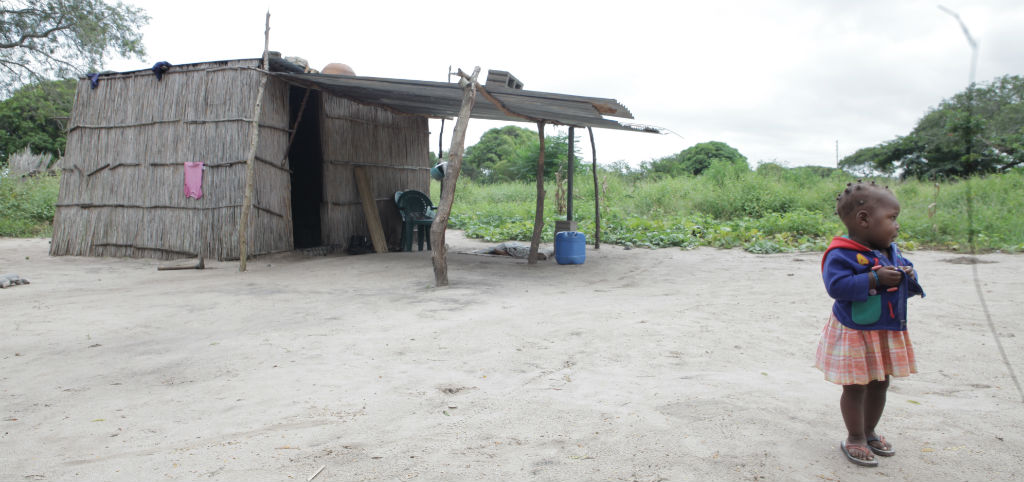Key Issues on the Use of Ivermectin as a Potential Game Changer for Malaria Elimination
On World Malaria Day, a series of papers propose how the Nobel prize-winning drug may contribute to reducing transmission of vector-borne diseases
24.04.2017
The Malaria Journal has published a series of three papers authored by experts from ISGlobal, a centre supported by the "la Caixa" Banking Foundation, on the potential use of ivermectin to reduce malaria transmission. The series, published on World Malaria Day, will be accompanied by three commentaries: by Nobel laureate Satoshi Omura, who discovered ivermectin, and Andy Crump; by Pedro Alonso and Dirk Engels, directors of the WHO Global Malaria Programme and Control of Neglected Tropical Diseases, respectively; and by Frank Richards, from the Carter Center.
Ivermectin is an anti-parasitic medicine with an excellent safety profile that has been successfully used to treat worm infections such as onchocerciasis and lymphatic filariasis. It also kills arthropods feeding on a treated individual, including Anopheles mosquitoes that transmit malaria. This has led scientists to consider mass drug administration (MDA) with ivermectin as a potentially powerful tool to reduce malaria transmission. Importantly, it can kill mosquitoes that bite outdoors and before dusk (and therefore not targeted by the core vector control tools- indoor residual spraying and long-lasting insecticide nets), and possibly insecticide-resistant mosquitoes.
Carlos Chaccour and Regina Rabinovich (also ExxonMobil Malaria Scholar at the Harvard T.H. Chan School of Public Health) have done an extensive evidence-based review supporting the use of ivermectin as a complement to vector control tools. In the first paper, co-authored with Felix Hammann from the University Hospital of Basel, they discuss the drug’s mode of action (it not only kills mosquitoes but also affects their flight and biting capacity) and underline the need to find the optimal dose and administration schemes that ensure efficacy and safety. The second paper argues that the use of ivermectin for malaria reduction will require a clinical trial program to determine the public health impact of its mass administration. Although a clinical trial in an area of high seasonal transmission would have the best value for early investment, ivermectin could also be useful in areas with high insecticide and antimalarial drug resistance. Furthermore, it could maximise the impact of elimination efforts such as the MALTEM project in Southern Mozambique supported by the “la Caixa” Foundation and the Bill & Melinda Gates Foundation. “In fact, the relatively short effect of ivermectin fits well in the context of intense, time-limited efforts aimed at elimination”, says Chaccour. “This could also limit the risk of resistance to the molecule”, he adds. The third paper identifies the main pending regulatory and policy issues for the use of ivermectin to reduce malaria transmission at a community level.
“Mass drug administration of ivermectin constitutes a new paradigm for vector control” says Rabinovich. It offers indirect human protection by reducing local transmission, it has activity against different mosquito species, and could work in the context of insecticide resistance. “This series provides a path towards the evaluation of ivermectin’s impact on public health, a priority for malaria elimination efforts” she concludes.
As Pedro Alonso and Dirk Engels point out in their commentary “if evidence is obtained that MDA with ivermectin has a safe, incremental and cost-effective impact on malaria transmission, this new intervention could play a role in the reduction of malaria and tropical diseases”. For Satoshi Omura and Andy Crump, “using ivermectin to help conquer malaria has the potential to boost further the immeasurable health and socioeconomic benefits that the drug has already delivered across Africa”. However, Frank Richards from the Carter Center points to the challenge of enhancing the global supply of ivermectin “if we are to bring forth a vision of pluripotent and global mass drug administration”.
ISGlobal is a WHO Collaborating Centre for Malaria Control, Elimination and Eradication.
Reference:
- Carlos Chaccour, Felix Hammann and N. Regina Rabinovich. Ivermectin to reduce malaria transmission I. Pharmacokinetic and pharmacodynamic considerations regarding efficacy and safety. Malaria Journal. 201716:161. DOI: 10.1186/s12936-017-1801-4
- Carlos Chaccour and N. Regina Rabinovich. Ivermectin to reduce malaria transmission II. Considerations regarding clinical development pathway. Malaria Journal. 201716:166. DOI: 10.1186/s12936-017-1802-3
- Carlos Chaccour and N. Regina Rabinovich. Ivermectin to reduce malaria transmission III. Considerations regarding regulatory and policy pathways. Malaria Journal. 201716:162 DOI: 10.1186/s12936-017-1803-2



